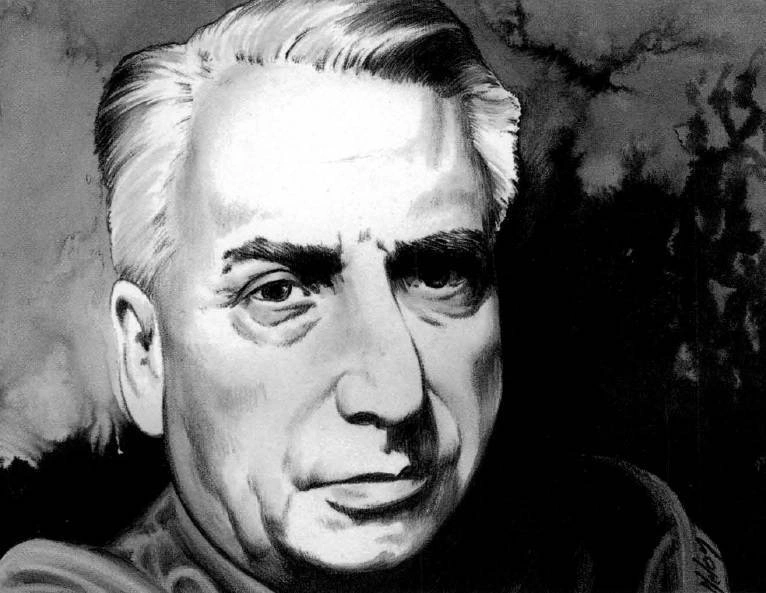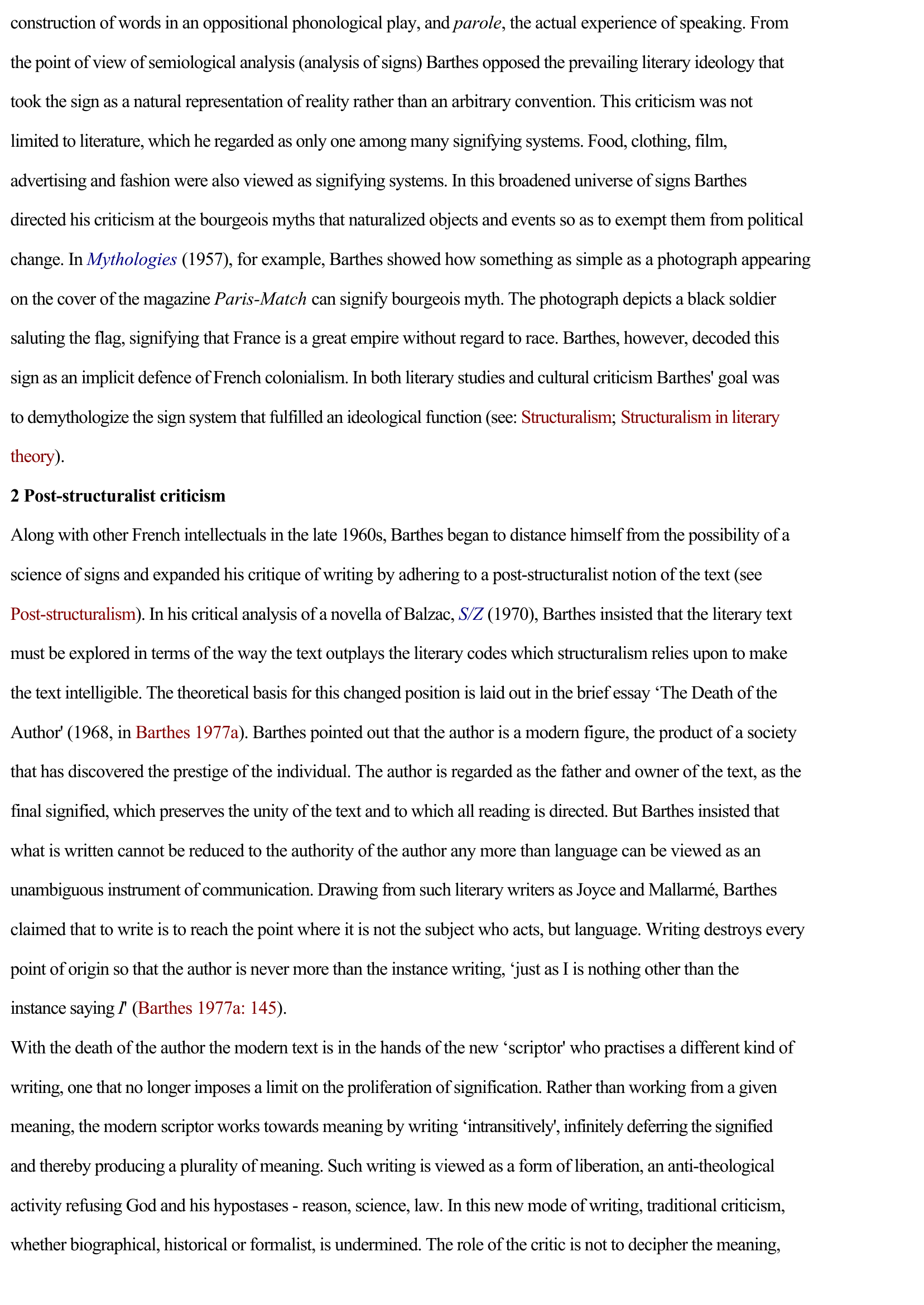Barthes, Roland
Publié le 22/02/2012

Extrait du document


«
construction of words in an oppositional phonological play, and parole , the actual experience of speaking.
From
the point of view of semiological analysis (analysis of signs) Barthes opposed the prevailing literary ideology that
took the sign as a natural representation of reality rather than an arbitrary convention.
This criticism was not
limited to literature, which he regarded as only one among many signifying systems.
Food, clothing, film,
advertising and fashion were also viewed as signifying systems.
In this broadened universe of signs Barthes
directed his criticism at the bourgeois myths that naturalized objects and events so as to exempt them from political
change.
In Mythologies (1957), for example, Barthes showed how something as simple as a photograph appearing
on the cover of the magazine Paris-Match can signify bourgeois myth.
The photograph depicts a black soldier
saluting the flag, signifying that France is a great empire without regard to race.
Barthes, however, decoded this
sign as an implicit defence of French colonialism.
In both literary studies and cultural criticism Barthes' goal was
to demythologize the sign system that fulfilled an ideological function (see: Structuralism ; Structuralism in literary
theory ).
2 Post-structuralist criticism
Along with other French intellectuals in the late 1960s, Barthes began to distance himself from the possibility of a
science of signs and expanded his critique of writing by adhering to a post-structuralist notion of the text (see
Post-structuralism ).
In his critical analysis of a novella of Balzac, S/Z (1970), Barthes insisted that the literary text
must be explored in terms of the way the text outplays the literary codes which structuralism relies upon to make
the text intelligible.
The theoretical basis for this changed position is laid out in the brief essay ‘The Death of the
Author' (1968, in Barthes 1977a ).
Barthes pointed out that the author is a modern figure, the product of a society
that has discovered the prestige of the individual.
The author is regarded as the father and owner of the text, as the
final signified, which preserves the unity of the text and to which all reading is directed.
But Barthes insisted that
what is written cannot be reduced to the authority of the author any more than language can be viewed as an
unambiguous instrument of communication.
Drawing from such literary writers as Joyce and Mallarmé , Barthes
claimed that to write is to reach the point where it is not the subject who acts, but language.
Writing destroys every
point of origin so that the author is never more than the instance writing, ‘just as I is nothing other than the
instance saying I' (Barthes 1977a: 145 ).
With the death of the author the modern text is in the hands of the new ‘scriptor' who practises a different kind of
writing, one that no longer imposes a limit on the proliferation of signification.
Rather than working from a given
meaning, the modern scriptor works towards meaning by writing ‘intransitively' , infinitely deferring the signified
and thereby producing a plurality of meaning.
Such writing is viewed as a form of liberation, an anti-theological
activity refusing God and his hypostases - reason, science, law.
In this new mode of writing, traditional criticism,
whether biographical, historical or formalist, is undermined.
The role of the critic is not to decipher the meaning,.
»
↓↓↓ APERÇU DU DOCUMENT ↓↓↓
Liens utiles
- EMPIRE DES SIGNES (L’)f 1970. Roland Barthes
- DEGRÉ ZÉRO DE L’ÉCRITURE (Le) Roland Barthes (résumé & analyse)
- EMPIRE DES SIGNES (L’), 1970. Roland Barthes
- AVENTURE SÉMIOLOGIQUE (L’), Roland Barthes (résumé)
- s/z de Roland Barthes

































